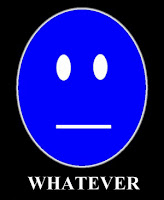It's not every day that you open a dusty old book and discover a treasure trove of sheer magic.
But the laws of the probable can take an unlikely turn, if the subject matter happens to be Harold Lloyd.
Though I finished writing my Lloyd-inspired novel The Glass Character about a year ago, my research (if you can call such an enjoyable pursuit research) continues. I just keep winkling out more books, most of them very old and long out of print. On a Harold Lloyd message board, I saw a discussion of a book called Harold Lloyd's World of Comedy by William Cahn. I had never heard of the title or the author, but I started digging on the internet, and before I knew it I was ordering a copy.
It's sad but understandable why most books about Harold Lloyd are yellowed and musty and rather out of date. For a very long time he was viewed through a pretty inferior pair of glasses (so to speak). He was always seen as a distant third to Chaplin and Keaton, which confounds me every time I watch one of his charming and wonderfully-crafted pictures.
There's only one reason I love Harold Lloyd so much (well, two, but I'll get to the other one): he makes me laugh. He makes me laugh myself teary-eyed, and gasp as I laugh, at his subtlety and insight and tremendous gift for creating audience identification.
But for decades, it seemed that nobody knew where to place him in film history except as an "also-ran". Richard Schickel wrote an unflattering book about him several years after his death, so I guess that was considered the last word on the subject.
Someone had the gall to say he "lacked tenderness",a barb which was completely inaccurate (for obviously that critic had never seen Girl Shy or The Kid Brother). He was labelled a "go-getter", for reasons that still confound me. Go-get what? All his struggles were motivated by love, usually unrequited love, which is why critics now believe that Harold Lloyd invented the genre of romantic comedy.
I don't know why it has taken all these decades to blow the dust off this magnificent comedic legend and restore him to his rightful place. That brings me to the other reason I love him so much: he is sweet and fierce and almost supernaturally beautiful, as witness the photos in this post. And he stayed that way all his life.
Today I received a fat brown parcel in the mail, an old cloth-bound book with no cover on it and that mellow, old-papery smell that I love. It was the Cahn book, dated 1964. I began to flip through it, disappointed that the photos were so small, and most of them not even of Lloyd.
When I isolated and tinkered with a tiny, smudgy photo of his famous glasses, however, they leaped off the page and almost scared me. These are the glasses that transformed Lloyd from a so-so Chaplin imitator into a comic genius, not just for the silent era but for all time.
What a shock! They're hardly there. Though they look dark on-screen, they appear delicate, with no glass in them, and when I lightened the exposure, I saw that they weren't black at all but tortoise-shell. It's eerie to look at these: you're seeing the essence of a unique talent, someone who knew that an everyman figure would engage audiences as never before. It's as if his antics, struggles and disappointments say to his viewers, "Has this ever happened to you?" Ah, yes - it has - and that's precisely why we laugh so hard.
I had a bonus surprise when I opened the book: a yellowed, very neatly-creased newspaper clipping fell out of the middle. It's a review that appeared in the Washington Star on Sunday, January 8, 1978, not of the Cahn book but of another Lloyd biography by Adam Reilly (which I also have). Is this a sign? Of what, I wonder? There was something a little spooky about this, and the strange little masthead stub that the reader must have used for a book mark.
Why this enigmatic time capsule; what could it mean? Why do such strange things always seem to happen around Harold Lloyd?
Harold, you pop up in the darndest places.






























